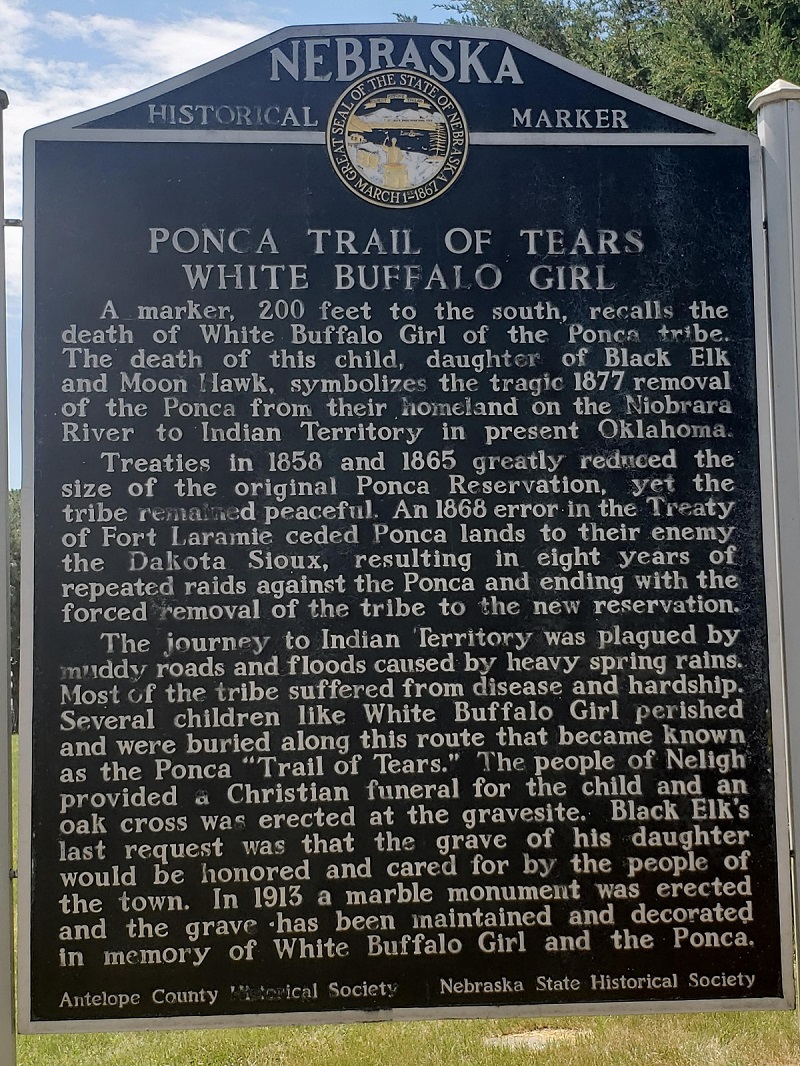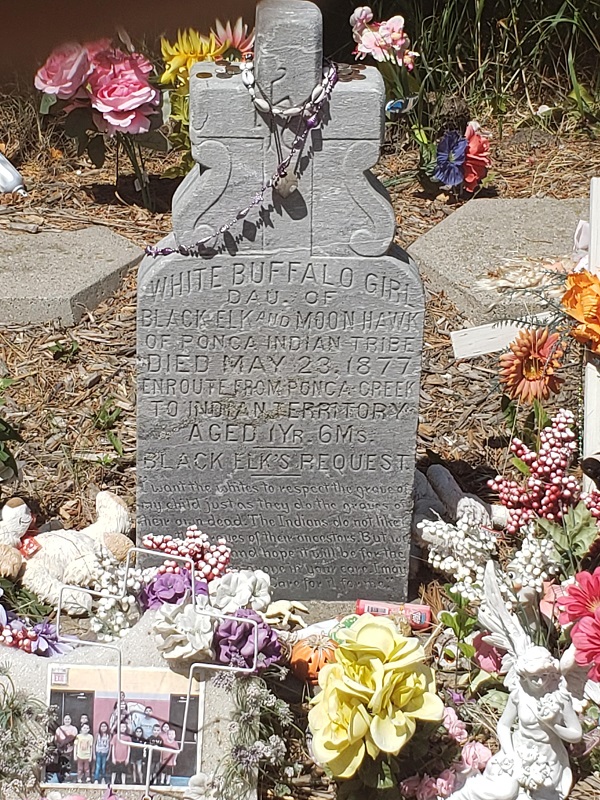Our Historical Markers across Nebraska highlight the important stories in our state’s past.
Today, we’re focusing on a sad story: the death of White Buffalo Girl during the forced removal of the Ponca from their homeland and the promise that the people of Neligh made to her father, Black Elk.

Marker Text
A marker, 200 feet to the south, recalls the death of White Buffalo Girl of the Ponca tribe. The death of this child, daughter of Black Elk and Moon Hawk, symbolizes the tragic 1877 removal of the Ponca from their homeland on the Niobrara River to Indian Territory in present Oklahoma.
Treaties in 1858 and 1865 greatly reduced the size of the original Ponca Reservation, yet the tribe remained peaceful. An 1868 error in the Treaty of Fort Laramie ceded Ponca lands to their enemy the Dakota Sioux, resulting in eight years of repeated raids against the Ponca and ending with the forced removal of the tribe to the new reservation.
The journey to Indian Territory was plagued by muddy roads and floods caused by heavy spring rains. Most of the tribe suffered from disease and hardship. Several children like White Buffalo Girl perished and were buried along this route that became known as the Ponca “Trail of Tears.” The people of Neligh provided a Christian funeral for the child and an oak cross was erected at the gravesite. Black Elk’s last request was that the grave of his daughter would be honored and cared for by the people of the town. In 1913 a marble monument was erected and the grave has been maintained and decorated in memory of White Buffalo Girl and the Ponca.
Marker Location
County Road 198, Neligh, Antelope County, Nebraska

White Buffalo Girl gravestone



